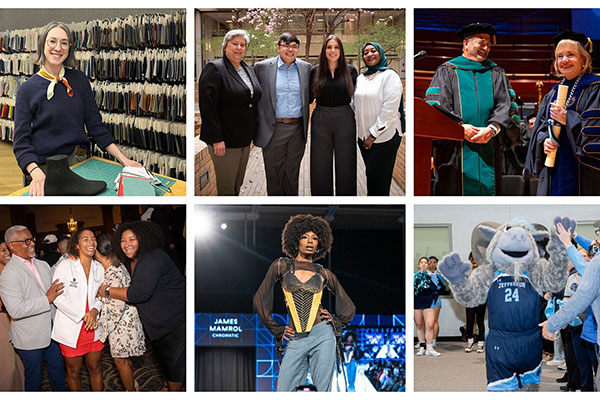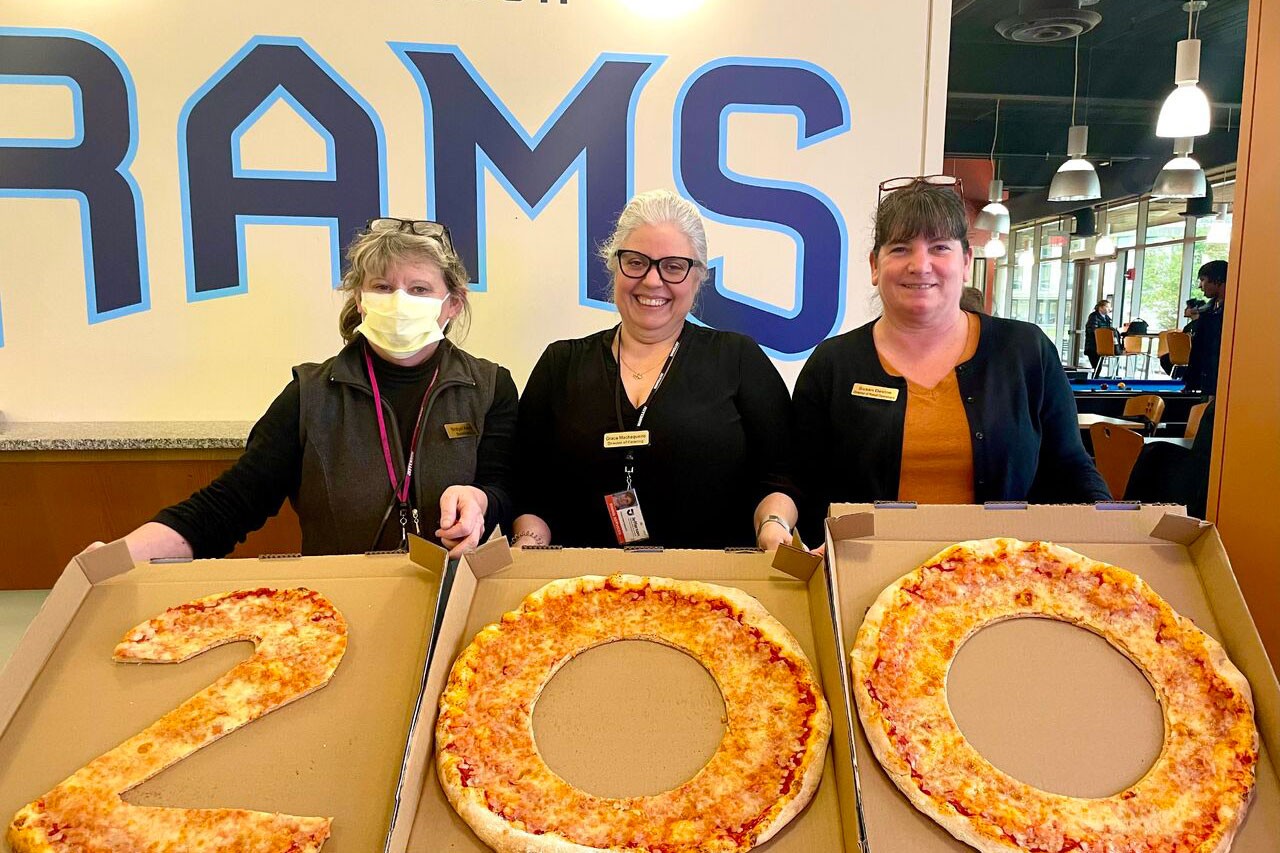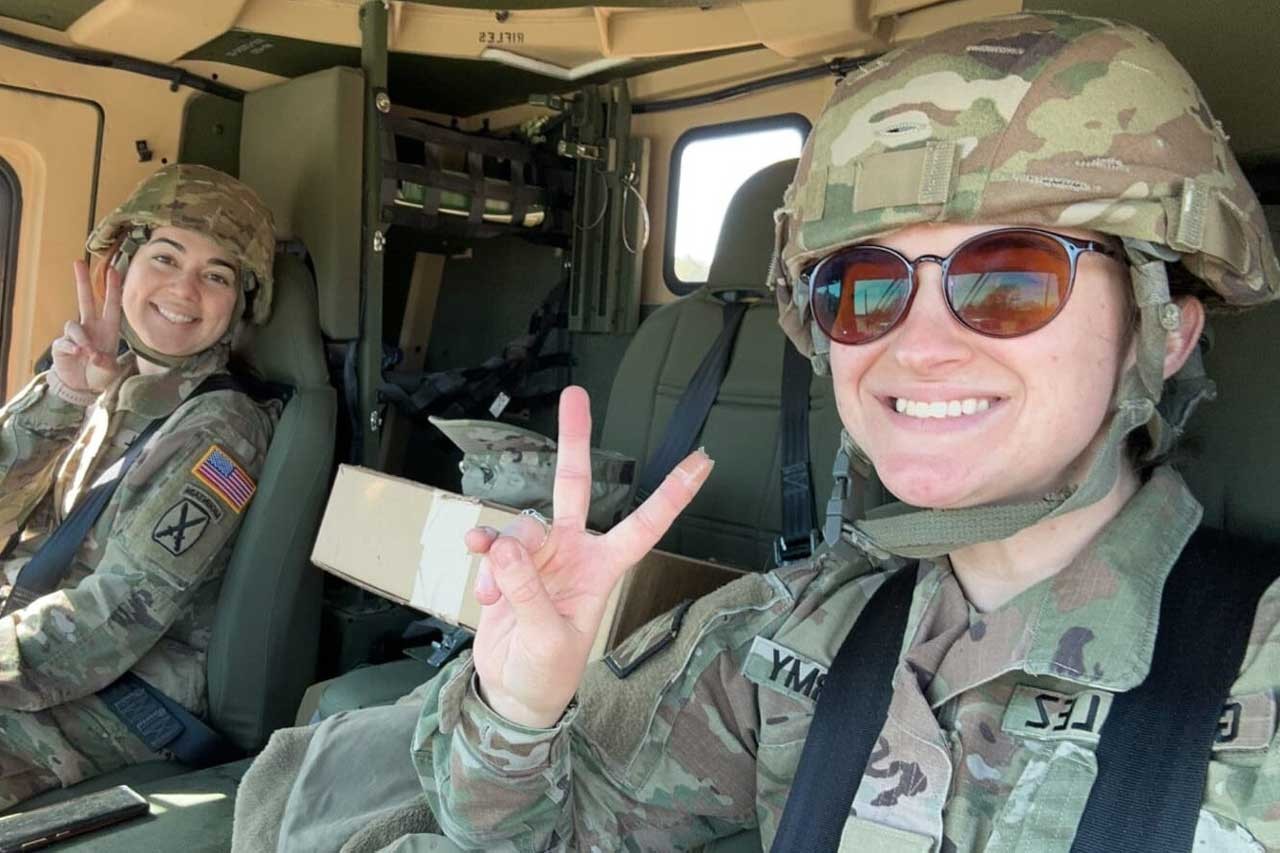
Lessons Learned from Sitting with Patients During Their Final Days
Jefferson student volunteers for the No One Dies Alone program.
I feel my phone buzz and glance at the screen. I notice my heart race as I realize that it is a request for my presence in a building not too far away. I gather my things and say a quick goodbye to my friends with a forced half-smile.
I find the building and am overwhelmed by the sparkling white walls and the familiar smell of Purell. I wander the maze of halls, looking for the room where my new companion rests. Whirls of emotion rush through my head; guilt for not getting there sooner, fear of not being enough, anxiety for the inevitable.
I find the room, and the nurse who requested my presence rewards me with a smile. Others whom I pass look at me with confusion as to why I, a healthy person dressed in civilian clothes, am seeking entrance into a space that most want to avoid.
I pause to gather myself as I don the appropriate attire: blue gloves, gown, booties and mask. I enter the room to meet my new companion, heavy with the knowledge that only one of us will be leaving.
As a volunteer for No One Dies Alone (NODA), a student-run organization, my job is to sit with patients who would otherwise be alone during their last days of life.
I enter the room to meet my new companion, heavy with the knowledge that only one of us will be leaving.
The first few minutes are always awkward but surprisingly similar to any other meeting in a hospital. I introduce myself in a soft tone as if speaking to someone who has just awoken from a deep sleep. I ask permission to sit but am often left feeling unsure. Their lack of response is unnerving, but I am reassured with the knowledge that their sense of touch and sound will be with them until the end. I do all the talking and try to make meaning out of any reaction I get. Sometimes, it is the slightest relaxation of muscle that I interpret as contentment. Other times, it is labored breathing that signals a sense of discomfort.
As the minutes tick by, I become more comfortable in this space. I have learned that as people approach a life transition, they prefer to spend their time with old friends rather than make new ones. So, I speak to them as if I were an old friend. I try to be the type of friend that you have known your whole life, the friend with whom you can share a space in silence and simply be comforted with each other’s presence. I introduce myself this way and ask them to think of me as this person.
After we have become comfortable with one another’s presence, the majority of our time is spent reading poetry. I choose poetry because it allows us to be transported out of the hospital. It allows us to reflect on our lives and gives us the opportunity to explore many of life’s emotions. My favorite poems are the ones that bring slow tears to my eyes. After I read them, I share how they make me feel and ask my friend what the poems mean to them, leaving space for them to answer. Even though words do not leave their mouths, I feel their answers percolate through the space that exists between us.
I try to be the type of friend that you have known your whole life, the friend with whom you can share a space in silence and simply be comforted with each other’s presence.
During my readings, a nurse may enter the room—and the intimate space that we created suddenly shatters. I become aware of the numerous sounds and sights that did not seem to exist seconds ago. I hear the various machines beeping in the room. I notice the sweat under my gloves and medical gown. I feel my hot breath blowing onto my face from my surgical mask. I become shy and awkward, waiting for the nurse to leave the room before I continue reading and we can be transported back to the reality that we have created for ourselves—two lifelong friends sharing a precious moment together.
As my time with my new friend approaches its end, I thank them just as I would for inviting me to their wedding or to the naming of their child. Over time, their breathing turns to gasping, and eventually, the next breath does not come. The doctor is called to pronounce their official time of death. I am shooed out of the room and told to go home. I am emotionally exhausted and step out of the bright hospital into the dark night. The sun has set, and I feel the chill in the fall air.
As I leave the hospital, I feel heavy with the reality that I anticipated before ever stepping into that room: Only one of us left.
This is what living is. Life is about truly experiencing what it means to live. To live is to feel as many of the emotions known to humankind: to laugh, to cry, to love, to lose. I have been given the great privilege of experiencing all of that in merely hours with my new lifelong friend. I have been taught to find life in death.
Jared Raikin is a second-year Sidney Kimmel Medical College student. He dedicates this piece of writing to his friend Avi Pinals, whose life and death inspired him to become involved with organizations that care for those near death. This commentary originally appeared in the Inquirer.



